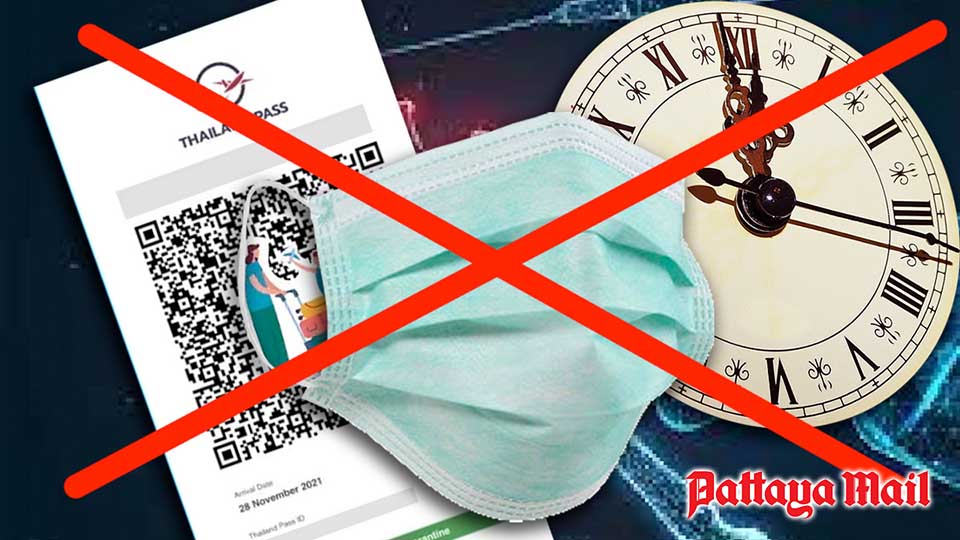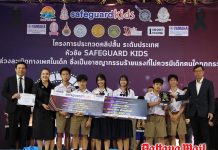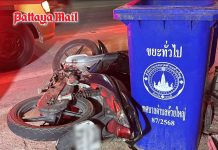
The Center for Covid-19 Situation Administration on Friday ended nearly all coronavirus pandemic restrictions, dropping the Thailand Pass entry system, the outdoor mask mandate and limits on nightlife hours.
Essentially signaling an end to the pandemic, the CCSA reclassified the entire country as a “green zone”, dropping all blue “tourism pilot zones” and reopening the entire country with the only restriction being an indoor mask mandate and the emergency decree, which expires July 31.
All the changes are expected to take effect July 1 or whenever published in the Royal Gazette.
Goodbye Thailand Pass
As expected, the CCSA terminated the Thailand Pass registration system, which required tourists and expats to obtain US$10,000 in health insurance and register with a buggy website to obtain a QR code that must be checked at the airport upon arrival.
Starting July 1, no insurance will be required and travelers can arrive in Thailand with only proof of full Covid-19 vaccination or a negative coronavirus test result from within the previous 72 hours. No QR codes will be needed, only a visa or passport stamp. And Thailand is contemplating waiving visa fees and extending passport stamps from 30-45 days.
In addition to boosting inbound tourism, the end of Thailand Pass is expected to revive the outbound tourism market, as Thais and expats not wanting to deal with the hassle and insurance requirements can now leave and enter the country as they like again.
No More Masks… Sort Of
Despite the opposition of Public Health Minister Anutin Charnvirakul, the CCSA decided to lift the requirement that masks be worn outside, with the except of “crowded environments”. Specifics of what constitute “crowded” may be disclosed in the Royal Gazette order.
The decision – applauded by everyone except Anutin – came after Phuket’s governor tried – and was knocked back – in tryng to lift the mask mandate there last month and Bangkok’s new governor said he planned to do the same. Gov. Chadchart Sittipunt attended the CCSA meeting to push his view.
Masks will remain required in indoor spaces for the foreseeable future and, likely, for public transportation. There also is wiggle room for provincial governors to declare their own “mask-required” zones.
Party Like It’s 2019
Most surprisingly, the CCSA agreed with pleas by Chadchart and Pattaya Mayor-elect Poramet Ngampichet, who also attended the meeting, to drop the midnight closing time for bars, clubs and other nightlife businesses nationwide.
While tourism and entertainment groups have been pushing hard for the return to normal operations for months, the CCSA – headed by Prime Minister Prayut Chan-o-cha – was seen as unlikely to drop the hours limit this week after the prickly PM expressed anger over widespread violation of the midnight closing time and two weekend drug raids at Bangkok after-hours nightclubs.
But come July 1, operating hours will revert back to their pre-pandemic norms: 2 a.m. for “entertainment zones” such as Bangkok’s Nana Plaza and RCA club district, and Walking Street in Pattaya. Other areas legally are still required to close by midnight.
Actual pre-pandemic hours, made possible by corrupt police, saw Walking Street open until 4 a.m., Nana Plaza and Soi Cowboy until 3 a.m. and other areas until 1 a.m. or 2 a.m. After-hours clubs, such as Sugar Club on Soi 11, remained open until near dawn.
This developing story, and further updates, are in the Bangkok Herald, a Pattaya Mail partner.
 |
 |
 |





